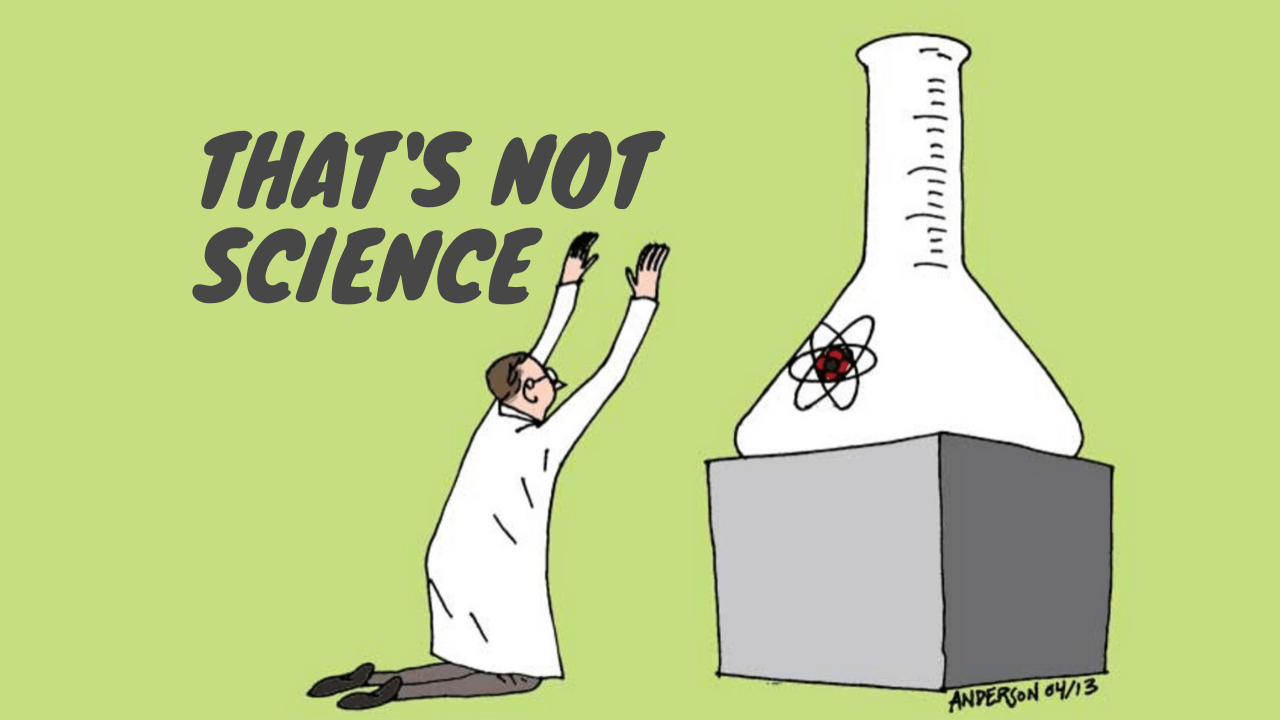In his epic The Winds of War, Herman Wouk refers to the “curious universal smirk of Germans when discussing Jews: condescending, facetious, and cold, with superior awareness of a very private inside joke”. I’ve often noticed a similar look when discussing climate science with alarmists. Mention a scientist or a piece of research, and the same expression appears: head thrown slightly back, with a condescending smirk. “Ah, but is it peer-reviewed science?” (with the implied sneer that anything that disagrees with their prejudices could not possibly be).
Again and again, in not just climate debate, but nearly every public policy issue, we hear the same phrase thrown out, like a mantra: “peer-reviewed science”. And, like most mantras, it’s an empty catch-phrase: a rote-learned chant, devoid of meaning.
More importantly, to me, anyway, it signals that the mantra-chanter has no idea what they’re talking about.
Only a fool thinks that “peer-reviewed” means “settled science”, or that the content of a paper is beyond dispute. As Nobel Prize-winner Peter Doherty has said, the real work of science isn’t done by peer-review, it’s done post-publication. That’s when a great many even peer-reviewed papers are torn apart. Many papers have passed peer-review, only to be savaged after publication: sometimes so badly that they are eventually retracted.
The Wakefield vaccines-cause-autism paper passed peer-review. So did the “hockey stick” paper by Joelle Gergis and Steve Karoly. So did the “warming oceans” climate paper, published by none other than Nature.
All were eventually retracted.
While peer-review is supposed to function as a basic quality-control test, increasingly it doesn’t as physicist Dr Peter Ridd notes:
Peer review is nothing like what the public think it is. Peer review is usually when a couple of scientists review a piece of work for often not more than a couple of hours. They may actually be friends of the original scientist. The original work is never replicated. The experiment is never done again. They don’t pore over the data or anything like that. It’s just a cursory check. So the public have been conned by a lot of scientists into thinking that peer review is something, which it is not.
In fact, it’s no stretch to say that peer-review is almost completely broken.
It’s about 50 per cent wrong. Recently this has become a big scandal in science in the last five or 10 years. It’s called the replication crisis. In lots of areas, biomedical area, psychology, chemistry, even physics, when they do replication studies they find that very roughly about half of the peer-reviewed work can’t be repeated. It’s got errors in it.
In one notable case, scientific publishing behemoth Springer in 2015 retracted no less than 64 papers, because the peer-review reports were fabricated. An astonishing 107 cancer studies were retracted in 2017 by the journal Tumor Biology. In 2016, publisher BioMed Central retracted 58 studies, mostly from Iranian scientists. That was on top of another 43 retracted by the publisher, the year before.
Besides outright fraud, there is also the problem of “pal review”, especially prevalent in climate science. A small clique of like-minded senior scientists dominate the review field (sometimes, as was notoriously revealed by the “climategate” papers, bullying dissenting editors out of a job) and groupthink follows.
But this largely unacknowledged scandal is not just a crisis for science. It’s having a devastating effect on public policy.
Because the “follow the science” crowd have leveraged themselves into positions of enormous policy influence.
In a sense most science is never used. It’s interesting. It might end up on Catalyst or something like that. But it’s when it’s going to be used by governments, if it hasn’t been checked properly then the government can waste an awful lot of money. That’s what’s happening with the reef. That’s probably what’s happening with climate change and many, many other areas where governments are using science, which has just been peer-reviewed.
Spectator Australia
Once these lab-coated troughers manipulate their way to policy influence, they’re almost never held to account. Despite being repeatedly catastrophically wrong, they just move from trough to trough.
But, such is the way of a scandalous scientific-political complex.
Science is under attack from the forces of un-Reason and it’s being systematically wrecked from the inside. The policy disasters of the recent past, on everything from covid to climate, are just the beginning of the New Dark Ages that will result if something isn’t done to fix this shocking state of affairs.
Please share this article so that others can discover The BFD

